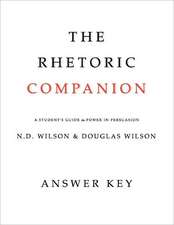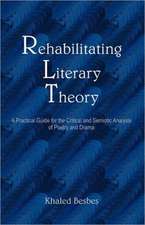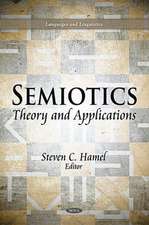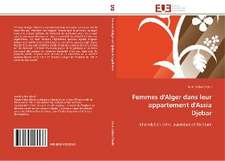Embodiment in Language (II): Food, Emotion and Beyond
Editat de Shelley Ching-yu Depneren Limba Engleză Hardback – 17 noi 2016
| Toate formatele și edițiile | Preț | Express |
|---|---|---|
| Paperback (1) | 637.28 lei 3-5 săpt. | |
| Springer Nature Singapore – 29 iun 2018 | 637.28 lei 3-5 săpt. | |
| Hardback (1) | 644.82 lei 6-8 săpt. | |
| Springer Nature Singapore – 17 noi 2016 | 644.82 lei 6-8 săpt. |
Preț: 644.82 lei
Preț vechi: 758.60 lei
-15% Nou
Puncte Express: 967
Preț estimativ în valută:
123.39€ • 131.94$ • 102.88£
123.39€ • 131.94$ • 102.88£
Carte tipărită la comandă
Livrare economică 17 aprilie-01 mai
Preluare comenzi: 021 569.72.76
Specificații
ISBN-13: 9789811017971
ISBN-10: 9811017972
Pagini: 210
Ilustrații: XVI, 216 p. 22 illus. With The first volume was published years ago by the author with another local publisher in Taiwan..
Dimensiuni: 155 x 235 x 14 mm
Greutate: 0.54 kg
Ediția:1st ed. 2016
Editura: Springer Nature Singapore
Colecția Springer
Locul publicării:Singapore, Singapore
ISBN-10: 9811017972
Pagini: 210
Ilustrații: XVI, 216 p. 22 illus. With The first volume was published years ago by the author with another local publisher in Taiwan..
Dimensiuni: 155 x 235 x 14 mm
Greutate: 0.54 kg
Ediția:1st ed. 2016
Editura: Springer Nature Singapore
Colecția Springer
Locul publicării:Singapore, Singapore
Cuprins
Chapter 1 Introduction.- Part I. Embodiment and Food.- Chapter 2 Food Metaphors in Taiwan Hakka.- Chapter 3 Pragmatic Functions of Hakka Proverbs: Humor, Praise and Food.- Chapter 4 Fruit and Some Plant Vehicles in Mandarin Chinese, English and German.- Part II. Embodiment and Emotion.- Chapter 5 How do Men and Women Express Emotion Differently.- Chapter 6 Taboos in Animal Fixed Expressions in Mandarin Chinese.- Chapter 7 Euphemisms in Animal-Fixed Expressions in Mandarin Chinese.- Part III. Embodiment in Broader Contexts.- Chapter 8 The Punchlines of Jokes about Women in Italian, English, Spanish and Mandarin Chinese.- Chapter 9 Legendary Animal Metaphors in Political and Economic Discourse.- Chapter 10 Prototypical Effect and Cultural Implication of Hakka Proverbs.- Chapter 11 How do Taiwanese Second Language Learners Learn English Body Part Metonymy.- Chapter 12 Conclusion.
Notă biografică
Shelley Ching-yu Depner is a professor at Department of Foreign Languages and Literature in National Cheng Kung University, Taiwan. She has a PhD in Linguistics from Tübingen University, Germany in 2001. The focus of her research is a cross-cultural comparison of the cognitive semantics and sociolinguistics of Mandarin Chinese and German.
Textul de pe ultima copertă
This book provides useful strategies for language learning, researching and the understanding of social factors that influence human behavior. It offers an account of how we use human, animal and plant fixed expressions every day and the cultural aspects hidden behind them. These fixed expressions include various linguistic vehicles, such as fruit, jokes and taboos that are related to speakers’ use in the real world. The linguistic research in Mandarin Chinese, Hakka, German and English furthers our understanding of the cultural value and model of cognition embedded in life-form embodiment languages.
Caracteristici
Compiles cross-cultural research using life-form fixed expressions by taking cognitive and semantic point of views Provides useful strategies for language learning, researching and the understanding of social factors that influence human behavior Discusses the various aspects that could be hidden behind life-form fixed expressions, such as food names and taboos Includes supplementary material: sn.pub/extras


















